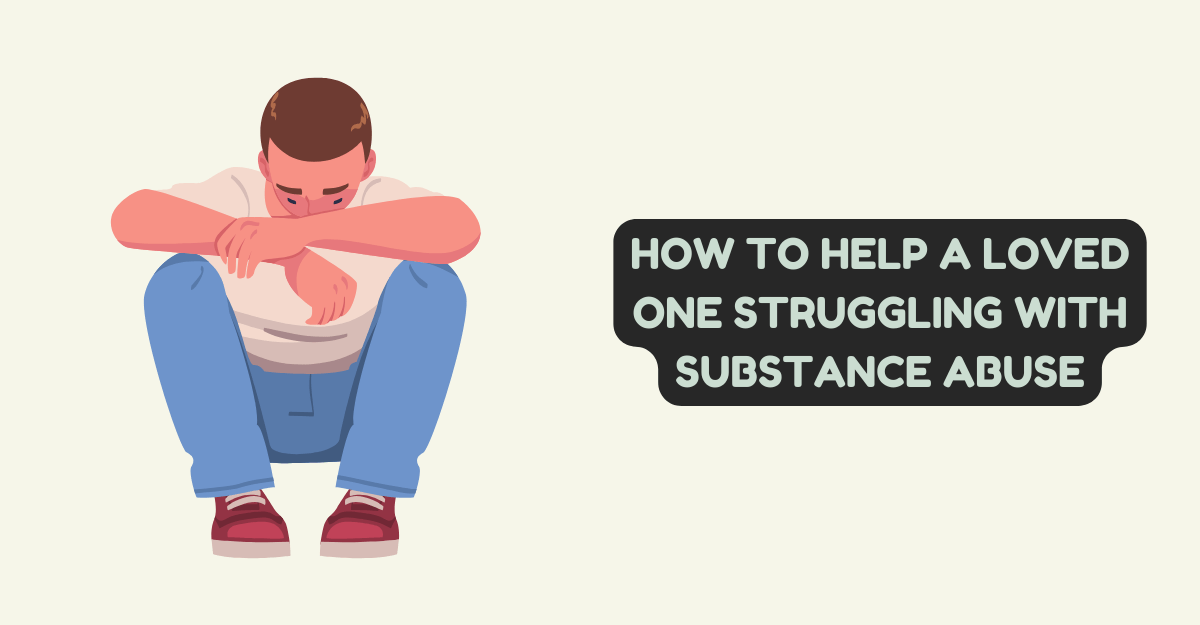
How to Help a Loved One Struggling with Substance Abuse
Substance abuse is a complex and challenging issue that can affect anyone, including your loved ones. Watching someone you care about grapple with addiction can be distressing and overwhelming. However, offering support and guidance can make a significant difference in their journey towards recovery. Start by learning the practical steps you can take to help a loved one struggling with substance abuse. Educating yourself about the signs and symptoms of substance abuse can help you better understand what your loved one is going through and how you can support them effectively.
Understanding Substance Abuse
Before determining how to help, it’s crucial to understand substance abuse and its impact. Substance abuse is a chronic disease characterized by compulsive drug seeking and use, despite harmful consequences. It can lead to severe health problems, strained relationships, and financial difficulties. When you educate yourself about substance abuse, you’ll be better equipped to effectively support your loved one. Understanding the underlying causes of substance abuse, such as genetic predispositions or environmental factors, can help you approach the situation with greater empathy and insight.
Approaching the Situation with Compassion
Approaching a loved one about their substance abuse requires sensitivity and empathy. Avoid judgmental language or criticism that may push them further away. Instead, express your concerns from a place of love and care. Let them know that you’re there to support them unconditionally and that you want to help them overcome their challenges. Offer to listen without passing judgment, providing a safe space to share their feelings and experiences. Remember to reassure them that seeking help is a sign of strength rather than weakness and that you’ll be by their side every step of the way.
Encouraging Open Communication
Encouraging open communication is essential in addressing substance abuse. Create a safe and non-judgmental environment where your loved one feels comfortable discussing their struggles. Listen actively to their concerns and validate their feelings. Be patient and understanding, even if the conversation becomes difficult or emotional. Encourage your loved one to express themselves freely, knowing that you’re there to support them without judgment. You should also avoid interrupting or offering unsolicited advice, allowing them to speak openly and feel heard.
Offering Practical Support
Offering practical support can greatly aid your loved one in their journey towards recovery. Help them research treatment options, such as therapy or support groups, and accompany them to appointments if needed. Assist with everyday tasks, such as grocery shopping or household chores, to alleviate some of their stress. Furthermore, encourage them to reach out to a substance abuse hotline for immediate assistance and guidance. In addition, providing transportation to appointments or meetings can ensure they have access to necessary resources and support networks. You can also offer to help them create a schedule or routine that supports their recovery goals and promotes healthy habits.
Setting Boundaries
While supporting a loved one with substance abuse, it’s important to set boundaries to protect yourself and maintain your well-being. Communicate your limits and what behavior you’re willing to tolerate. For example, you may choose not to provide financial assistance if it’s enabling their addiction. Setting boundaries shows that you care about their well-being while also prioritizing your own. Additionally, be consistent in enforcing boundaries to establish clear expectations and promote accountability in their recovery journey. Setting boundaries is not about punishing or controlling your loved one but rather about maintaining healthy dynamics in your relationship.
Encouraging Healthy Habits
Encouraging your loved one to adopt healthy habits can support their recovery journey. Encourage regular exercise, a nutritious diet, and sufficient sleep, as these habits can positively impact their physical and mental health. Participating in activities together, such as hiking or cooking healthy meals, can strengthen your bond while promoting wellness. In addition, consider exploring mindfulness or relaxation techniques together, such as yoga or meditation, to help effectively manage stress and cravings. Supporting them in finding enjoyable and fulfilling hobbies can also distract them from substance use and provide a sense of purpose and fulfillment.
Seeking Support for Yourself
Supporting a loved one with substance abuse can take a toll on your own mental and emotional well-being. It’s crucial to seek support for yourself, whether through therapy, support groups, or talking to trusted friends and family members. Taking care of yourself allows you to better support your loved one and maintain your own health and happiness. Consider setting aside time for self-care activities, such as exercise, meditation, or hobbies, to recharge and prevent burnout. Moreover, establishing healthy boundaries in your relationship with your loved one can help prevent feelings of resentment or overwhelm.
A Beacon of Hope
Supporting a loved one struggling with substance abuse can be challenging, but it’s also incredibly rewarding. By approaching the situation with compassion, encouraging open communication, offering practical support, and setting boundaries, you can be a beacon of hope in their journey toward recovery. Remember to take care of yourself along the way and seek support when needed. Celebrate small victories and milestones in their recovery journey, acknowledging the progress they’ve made and the resilience they’ve shown. Together, you can navigate through the difficulties of substance abuse and emerge stronger on the other side.






